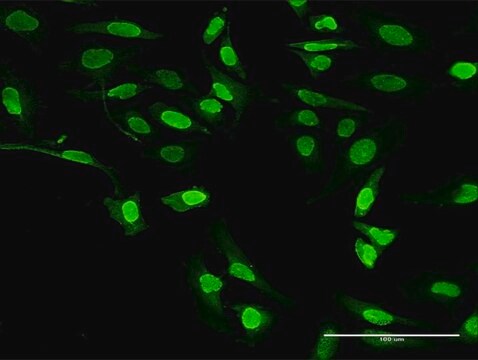T5942
Monoclonal Anti-14-3-3 θ/τ antibody produced in mouse
clone 3B9, purified immunoglobulin, buffered aqueous glycerol solution
About This Item
Recommended Products
biological source
mouse
conjugate
unconjugated
antibody form
purified immunoglobulin
antibody product type
primary antibodies
clone
3B9, monoclonal
form
buffered aqueous glycerol solution
mol wt
antigen 31 kDa
species reactivity
rat, bovine, human, mouse
technique(s)
immunoprecipitation (IP): suitable
microarray: suitable
western blot: 1:5,000 using whole extracts of mouse 3T3, rat PC12, human Jurkat, or normal fibroblasts or bovine MDBK cells
isotype
IgG1
shipped in
wet ice
storage temp.
−20°C
target post-translational modification
unmodified
Gene Information
human ... YWHAQP4(646954)
mouse ... EG546165(546165)
Immunogen
Physical form
Disclaimer
Not finding the right product?
Try our Product Selector Tool.
related product
Certificates of Analysis (COA)
Search for Certificates of Analysis (COA) by entering the products Lot/Batch Number. Lot and Batch Numbers can be found on a product’s label following the words ‘Lot’ or ‘Batch’.
Already Own This Product?
Find documentation for the products that you have recently purchased in the Document Library.
Our team of scientists has experience in all areas of research including Life Science, Material Science, Chemical Synthesis, Chromatography, Analytical and many others.
Contact Technical Service








